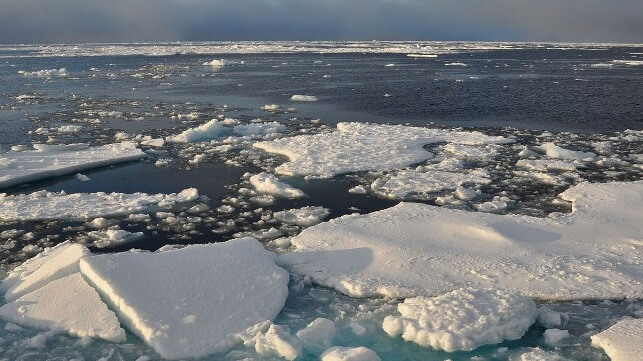Arctic HFO Ban Starts as Activists Say There Are Too Many Loopholes

Three years after the International Maritime Organization (IMO) adopted the regulation, the international ban on transporting or using heavy fuel oil (HFO) in the Arctic went into effect today, July 1, 2024. Shipping authorities are hailing it as a step toward better protection of the Arctic from the dangers of the fuel while environmentalists continue to emphasize it does not go far enough and contains far too many loopholes.
The ban was adopted at the 76th meeting of the IMO’s Marine Environment Protection Committee in June 2021. In the first phase, it targets older ships without double hulls or protected fuel tanks which are now banned from carrying HFO in the regions of the Arctic, but even there it remains up to the individual countries bordering the Arctic. The IMO provision distinguishes ships built after 2010 with protected tanks, but Danish authorities have said they will extend the exemption to older ships that also have protection on their fuel oil tanks.
The full force of the IMO’s regulations does not happen for another five years. Ships qualifying for the exemptions can continue to sail in the Arctic till 2029 according to the IMO’s regulation. The rule was modeled on a similar restriction for HFO in the Antarctic which went into effect in 2011.
“By allowing ships with protected fuel tanks to continue using HFO until 2029, we ensure that shipping can adapt to the new rules in a practical and responsible manner while simultaneously protecting the fragile environment in the Arctic," said Nina Porst, Director of Climate, Environment, and Safety at Danish Shipping. The influential group highlights that it supports the ban and is calling on shipping companies to use the time for an orderly transition.
Some countries, including Norway, however, are not waiting for the IMO regulations. Norway began the ban on HFO in the region around Svalbard in 2022. It recently imposed the first fine on a ship for violating the rules. Other countries such as Finland and the United States are yet to act.
Canada announced that it was imposing its HFO ban effective today, July 1. However, they too provided exemptions including for supply ships to the Arctic communities which can continue to use HFO till 2026. Ships with double hulls are exempt to 2029.
Environmental groups contend that the IMO regulation has significant loopholes. They contend that the IMO left around three-quarters (74 percent) of Arctic shipping unaffected by the ban. The NGO Clean Arctic Alliance argues that the use of diesel fuel along with the installation of particulate filters or precipitators, would reduce emissions of black carbon by more than 90 percent quickly and be a solid first step on the route to decarbonization. They are saying waiting till the end of the decade means the Arctic and Indigenous communities remain exposed to the dangers of a spill.
“Governments and NGOs fought long and hard to achieve the ban on the use and carriage of HFO in the Arctic - yet see that it will be half-implemented is quite simply not good enough,” said Dr. Sian Prior, Lead Advisor to the Clean Arctic Alliance. ”IMO Member States, especially Arctic coastal countries, must go farther than the IMO ban by implementing it in ways that truly protect the Arctic from HFO spills and black carbon emissions - and that means refusing to offer loopholes to the shipping industry.”
Activists point out that carbon emissions from ships operating on HFO are just as dangerous and have a broader impact than the focus on banning the transportation of HFO. The Clear Arctic Alliance is calling for the IMO to make the ban and enforcement immediate without loopholes. They want the IMO to extend the area covered by the ban and to enact regulations to reduce black carbon emissions.
The groups highlight the dramatic growth in the number of ships operating in the Arctic. Russia, which is moving aggressively to expand Arctic shipping and start year-round transits, also has not accepted the ban or taken any steps to enact its provisions.
No comments:
Post a Comment